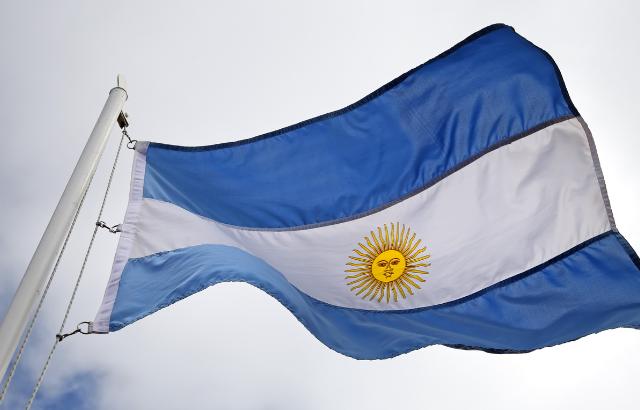How Argentina’s protesters are responding to a new president who wants to end environmental protections and sell off natural resources
Paula Serafini, Lecturer in Creative and Cultural Industries, in the School of Business and Management at Queen Mary University of London, has written for 'The Conversation' on how Argentina’s protesters are responding to a new president who wants to end environmental protections and sell off natural resources

Argentina’s new ultra right-wing president Javier Milei, who took office in December 2023, has enjoyed a sudden rise to power. A libertarian economist who came to prominence for his aggressive, extremist declarations as a TV panellist, Milei managed to channel the desire for change of millions who were discontent with the political establishment and a significant economic crisis.
During his campaign, the now president repeatedly argued that environmental protections are an unnecessary curtailment of business freedoms. He also stated he does not believe climate change is caused by human activity, and dismissed the idea as a socialist invention.
Following his election, Milei put forward an “omnibus” package of laws which would significantly reduce the protection of glaciers and forests, and further deregulate mining, among other things. In addition, a decree (currently contested) deactivated a law which limits the types and amounts of land that can be purchased by foreign entities. This opens the door to the indiscriminate purchase of strategic borderlands, waterways and other natural resources.
These changes came as as Elon Musk and the US government expressed their interest in the lithium found in the high-altitude salt flats shared with Bolivia and Chile. Lithium is an essential element for batteries used in all sorts of green technologies, and substantial deregulation raises the alarm over a possible looting of one of the worlds most coveted resources.
These measures have effectively set back environmental debates by decades. And given their breadth and potential consequences, the country’s environmental movements face great challenges.
The fightback against extractivism
Environmental movements in Argentina are relatively marginal compared to other parts of the world. The political class and most of the population share an ingrained belief in development through the intensive extraction and export of natural resources. Scholars and activists have termed this “extractivism”, and it has enabled socially and environmentally disastrous projects to go ahead. Dissidents are often heavily stigmatised or persecuted.
These movements do exist though. There are campaigning NGOs and groups including the Argentine Association of Environmental Lawyers or the Union of Citizen Assemblies (UAC) which organises frontline opposition to extractive projects. There are young people’s movements like Jóvenes por el Clima, communities of indigenous people defending life in their territories, and many other coalitions involving university workers, leftist parties and trade unions.
In recent years these groups have championed causes like the protection of the vast Paraná Delta wetlands, and have asked awkward questions like who that lithium would be extracted for, and for what purpose.
How activism is changing
But Milei’s arrival has shaken the whole of Argentinian politics and society, and this is no different for environmental movements. Milei’s shock measures have already included a sharp currency devaluation, public sector austerity and measures to severely curtail workers’ rights. With many people in an extremely precarious position, organising for long-term environmental transformations might have to take a step back in favour of immediate actions in support of those in urgent need.
Likewise, the threat to existing laws means that campaigns for new legislation, such as a demand for a new “wetlands law”, have been put on hold. Instead, there is a focus on defending those laws that are still standing, as these are the few existing instruments to limit rampant deforestation and extraction in conservation zones.
Importantly, discussions on the “ifs” and “hows” of lithium extraction have now shifted towards the defensive position of protecting land and resources from being given away for pennies, as Milei intends to further deregulate mining and eventually privatise the national energy company YPF.
However, the attack that Milei has launched on each area of life means that there is now a space for new political alliances. It will be key for environmental movements to strengthen links with those defending health, culture and labour rights, and to bring people together in defence of political institutions, national sovereignty, and against indiscriminate privatisation. In every protest in every province of the country one can now hear the slogan: “No se vende. La patria no se vende” [Not for sale. The homeland is not for sale].
Related items

24 June 2025

17 June 2025
